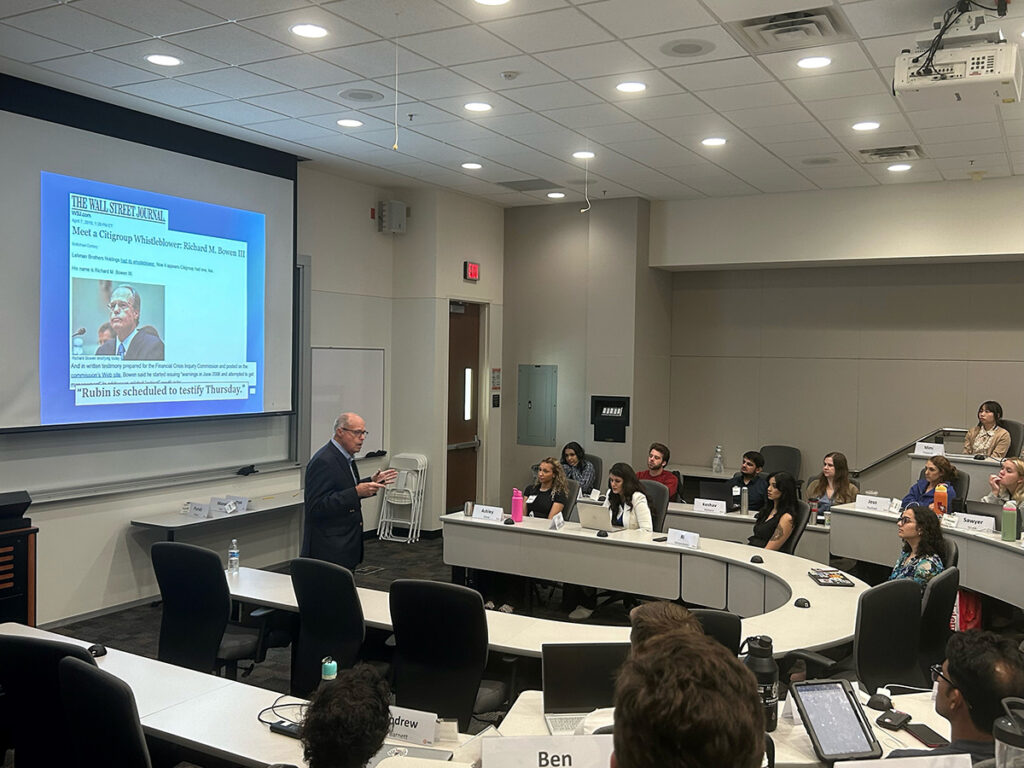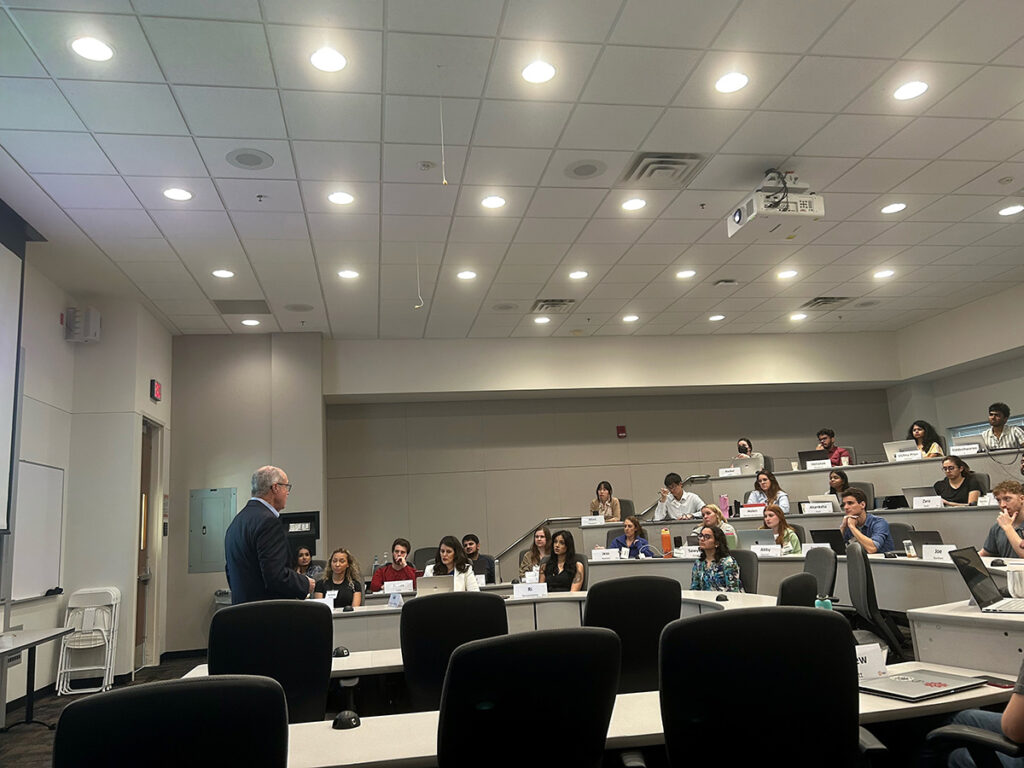
Over the summer I had the privilege of speaking to two MBA programs on the UT Dallas campus. Both programs are highly rated nationally, so it always gives me hope to see students engaged and determined to help make a more ethical work culture after graduation.
In July, it was my honor to speak to the full-time MBA LEAD (Leadership, Enhancement, Academic, Professional Development) camp for the 12th straight year. The camp is a two-week orientation period for every full-time MBA class, which students typically complete in 24 months with an average of five years’ work experience before enrolling in the program.
In August I also spoke, as I have in the past, to the Executive MBA program ethics class. The EMBA program is designed for working managers, with the classes held on Friday and Saturday with the degree completion typically taking 22 months. These students have an average of 17 years average work experience, with 14 years in management.
Both of these programs are highly rated nationally. Because the EMBA involves students already in the workforce, they’ve seen a little more of what can happen when ethics exist more in theory than in practice. This experience helps them relate to what I talk about a little more. It’s easier to visualize what could happen once you see how easily people can follow the wrong path “just this once.”
My story is not new. But it is unfortunately not so uncommon as to be forgotten, either. People in big banks still make decisions that cost people more than they can afford, and still, big banks go without accountability most of the time. Sure, a few million in fines get levied, but to a billion-dollar company, that’s not much of a deterrent. That’s why I am so thankful that the MBAs coming through these programs get an education on ethics and ethical business practices. They are the ones most likely to step up when they see something wrong on the job.

I have been told that the students in both programs gave me rave reviews. That is encouraging. I know that the students who hear of my experience will be better equipped to make solid choices in their career paths. And they’ll know what can happen when they speak up for what’s right.
Whenever I speak to MBA classes, I address the question of how can you tell if a corporate culture is an ethical corporate culture. Sometimes it’s hard to tell. Most companies have a code of ethics that new hires sign and agree to incorporate into their daily work. But when you see your superiors making unethical decisions, it becomes clear that the code is more preach than practice. No matter the industry, ethical leadership sets the tone for the entire company. If you see wrongdoing, the choices are to say something or get out.

 Richard Bowen is widely known as the Citigroup whistleblower. As Business Chief Underwriter for Citigroup during the housing bubble financial crisis meltdown, he repeatedly warned Citi executive management and the board about fraudulent behavior within the organization. The company certified poor mortgages as quality mortgages and sold them to Fannie Mae, Freddie Mac and other investors.
Richard Bowen is widely known as the Citigroup whistleblower. As Business Chief Underwriter for Citigroup during the housing bubble financial crisis meltdown, he repeatedly warned Citi executive management and the board about fraudulent behavior within the organization. The company certified poor mortgages as quality mortgages and sold them to Fannie Mae, Freddie Mac and other investors.

